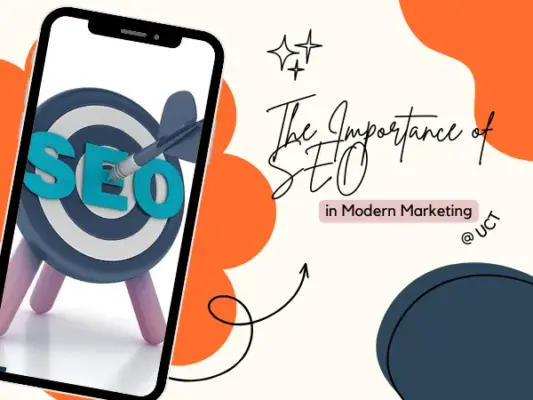
Introduction
In today’s digital landscape, where online presence is crucial for business success, Search Engine Optimization (SEO) stands out as a fundamental component of modern marketing. SEO helps businesses improve their visibility on search engines, attract more organic traffic, and ultimately achieve their marketing goals. As competition intensifies and consumer behavior shifts towards digital, understanding and leveraging SEO is more important than ever. This blog delves into why SEO is essential in modern marketing and how it can drive significant benefits for your business.
1. Enhanced Online Visibility
The primary goal of SEO is to improve your website’s visibility on search engines like Google. When potential customers search for keywords related to your products or services, SEO ensures that your website ranks higher in search engine results pages (SERPs). Higher visibility increases the likelihood of attracting clicks and driving organic traffic to your site. This enhanced online presence is crucial for capturing potential customers’ attention in a crowded digital marketplace.
2. Increased Website Traffic
Higher search engine rankings lead to increased website traffic. Research shows that the top three organic search results receive the majority of clicks, with the first result capturing over 30% of traffic. By optimizing your website for relevant keywords and providing valuable content, SEO helps you attract more visitors who are actively searching for what you offer. More traffic translates to more opportunities for conversions and business growth.
3. Improved User Experience
SEO is not just about optimizing for search engines; it also involves improving the overall user experience. Factors such as page load speed, mobile-friendliness, and intuitive navigation play a crucial role in SEO. A well-optimized website provides a better user experience, which can reduce bounce rates and increase the time visitors spend on your site. A positive user experience contributes to higher engagement and encourages repeat visits.
4. Cost-Effective Marketing
Compared to traditional advertising methods, SEO offers a cost-effective marketing strategy. While paid ads can drive immediate traffic, they require continuous investment. In contrast, SEO focuses on organic search results, which, once achieved, can provide long-term benefits without ongoing costs. Investing in SEO can yield a high return on investment (ROI) by generating sustained traffic and leads over time.
5. Builds Credibility and Trust
Appearing at the top of search engine results lends credibility and authority to your business. Users tend to trust websites that rank higher on Google, perceiving them as more reputable and trustworthy. Effective SEO practices, such as creating high-quality content and earning backlinks from authoritative sites, help establish your brand as a credible source of information in your industry.
6. Targeted Traffic and Higher Conversion Rates
SEO helps you attract targeted traffic by focusing on specific keywords and search intent. When users find your website through relevant searches, they are more likely to be interested in what you offer. This targeted approach leads to higher conversion rates, as visitors who arrive at your site are already inclined towards making a purchase or engaging with your business.
7. Competitive Advantage
In a competitive market, SEO can provide a significant edge over competitors. By optimizing your website and content, you can outrank competitors in search results and capture a larger share of the market. Keeping up with SEO trends and implementing best practices ensures that you stay ahead of the competition and maintain a strong online presence.
8. Data-Driven Insights
SEO provides valuable data-driven insights into your audience’s behavior and preferences. Tools like Google Analytics offer detailed information on user interactions, keyword performance, and traffic sources. Analyzing this data helps you make informed decisions, refine your marketing strategies, and better understand what resonates with your audience.
9. Long-Term Results
SEO is a long-term strategy that yields sustainable results. While it may take time to see significant improvements in rankings and traffic, the benefits of SEO can last for years. Consistent optimization efforts and quality content creation build a strong foundation for long-term success and ongoing visibility.
10. Integration with Other Marketing Strategies
SEO works effectively in conjunction with other marketing strategies. It complements content marketing by driving traffic to valuable content, enhances social media efforts by increasing content visibility, and supports email marketing by boosting landing page performance. A well-rounded marketing approach integrates SEO with other strategies to maximize overall effectiveness.
Conclusion
Incorporating SEO into your modern marketing strategy is essential for achieving online success. From enhancing visibility and driving targeted traffic to improving user experience and building credibility, SEO offers numerous benefits that contribute to business growth. By understanding the importance of SEO and implementing effective strategies, you can stay ahead in the competitive digital landscape and achieve your marketing objectives.